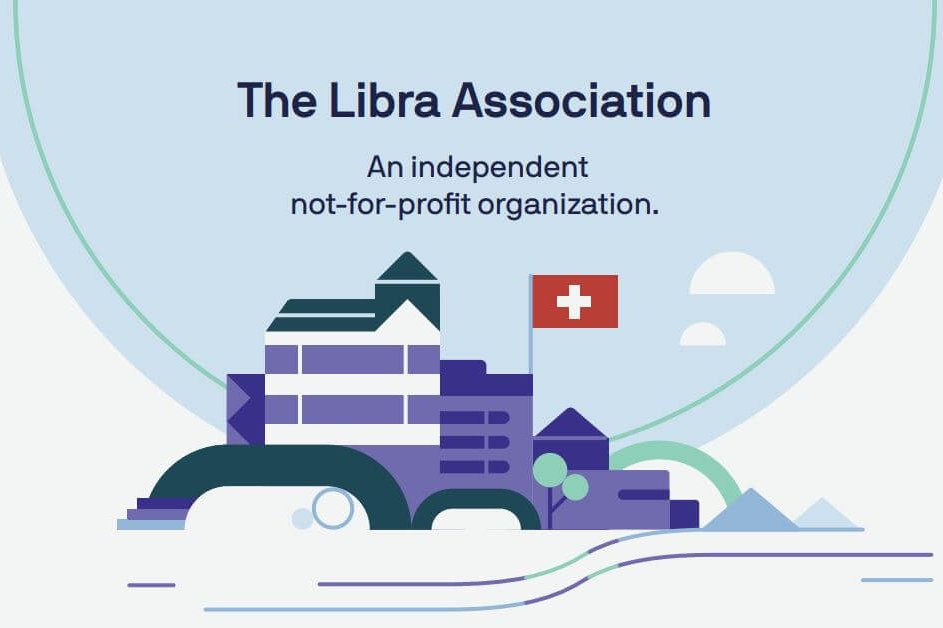

The long-awaited news about Facebook’s first foray into cryptocurrency has finally been unveiled.
The social media giant has today released the white paper for upcoming crypto project Libra, which will be overseen by the Libra Association in a bid to bring decentralised governance to the project.
The Libra Association will reportedly be an independent, non-profit membership organisation headquartered in Geneva, Switzerland. Its purpose is to coordinate and provide a framework for governance over the Libra network and reserve and lead social impact grant-making in support of financial inclusion.
The association is made up of the network of validator nodes that operate the Libra blockchain. Its members will reportedly consist of geographically distributed and diverse businesses, non-profit and multilateral organisations, and academic institutions.
The white paper for Libra states: “We believe that people will increasingly trust decentralised forms of governance.”
Decentralised governance will come as a positive for many, particularly in light of Facebook’s recent scandals and the loss of faith in the company.
The initial group of organisations will work together on finalising the association’s charter and will become “founding members” upon its completion. These groups and organisations are:
The Libra Association aims to have 100 members in its ranks in time for its target launch in the first half of 2020. Facebook teams will reportedly play a key role in the creation of the Libra Association and the Libra blockchain working with other founding members.
While final decisions will rest with the association, Facebook is “expected” to maintain a leadership role through 2019. Once the Libra network launches, Facebook will have the same responsibility as any other founding member. Its role and status will be equal to other founding members.
The choice to headquarter the Libra Association in Geneva is because Switzerland has a history of being neutral, and that is what the association strives to be.
The Libra Association is governed by the Libra Association Council which will be comprised of one representative per validator node.
The council will then vote on all decisions regarding Libra – a decision can only be passed if two-thirds of the council are in agreement.
The white paper reads: “As Libra relies on a growing distributed community of open-source contributors to further itself, the association is a necessary vehicle to establish guidance as to which protocols or specifications to develop and to adopt.”
A further responsibility for the council is to oversee and manage the Libra Reserve – a role which will ensure that stability and growth are achieved.
The association is partly able to mint and burn tokens, though coins can only be minted when authorised resellers have purchased coins from the association with fiat assets to fully back the new coins. Coins are only burned when authorised resellers sell Libra coins to the association in exchange for the underlying assets.
Since authorised resellers will always be able to sell Libra coins at a price equal to the value of the basket, the Libra Reserve acts as a “buyer of last resort”.
The white paper admits that the Libra Association is not fully decentralised at present, stating: “An important objective of the Libra Association is to move toward increasing decentralisation over time. This decentralisation ensures that there are low barriers to entry for both building on and using the network and improves the Libra ecosystem’s resilience over the long term.”
Part of the white paper outlines how the association will develop a path toward permissionless governance and consensus on the Libra network. This transition is expected to occur within five years, and in doing so will gradually reduce the reliance on founding members.
This means that while initially the Libra Association does not appear to be fully decentralised, at least the project is not making false claims of decentralisation and has presented its plan for moving toward its end goal.
If two-thirds of the council are required to be in agreement, then it should at least be apparent that no singular entity that is part of the council can veto a decision.
Only time will tell whether the project will move into truly permissionless governance, but the early signs are positive.
Denver, Colorado, 24th February 2025, Chainwire
Denver, Colorado, 20th February 2025, Chainwire
Washington, D.C., 18th February 2025, Chainwire
Dubai, UAE, 27th January 2025, Chainwire
Those who enter the market at this time may be surprised to hear that Bitcoin…
George Town, Grand Cayman, 22nd November 2024, Chainwire